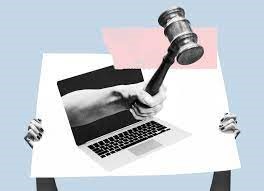
Over the past 5 years, we have seen some of society’s top figures have their lives changed by citizen justice. The everyday person has a say in whether or not they support others’ beliefs and companies take note of this. Typically, we will see a person lose support from financial sponsors because the public does not agree with something that has been said or done. It might be a toxic work environment, transphobic statements, sexual abuse, exploitation, or sexist remarks; if the public deems it insensitive, a cancellation might be in place. To better understand cancel culture, it is important to be aware of which groups are advocating for more accountability.
What seems like a pertinent topic to modern society, the numbers behind the knowledge and support of cancel culture might come as a surprise. Pew Research Center concluded that only 44% of Americans are familiar with cancel culture. With a topic so closely related to social media an assumption can be made that there would be a correlation between social media usage and a knowledge of cancel culture. However, this is not the case. According to a study done in October of 2021, over 70% of Americans have active social media accounts. Breaking this down into smaller subgroups based off of age, 90% of 18- to 29-year-old actively use social media while only 64% of that group had heard a fair amount about cancel culture. Social media plays a critical role in the cancel culture because it serves as a forum for people across the country to unite against one single person. Thus, a conclusion that can be drawn is that even though a majority of the public is on social media, a smaller percentage of people use it as a weapon.

Further into the research, there is a sizable gap between political ideologies and their thoughts on cancel culture. One of the biggest debates that is brought about with cancel culture is its effectivity to properly hold people accountable after being called out on social media. In terms of believing in the productiveness of cancel culture, liberals and conservatives are respectively split 75% to 39%. What can be drawn from this observation is that the people actively using cancel culture to create change in society upholds the beliefs of liberals twice as many conservatives.
Not only are there patterns between political ideologies as well as age, but gender also holds significance. Men are more likely to be aware of and support the outcomes of cancel culture than women. After, looking into the details about the gender discrepancy in cancelling someone, a new assumption can be made about who is being cancelled. The idea of holding people accountable is the responsibility of the law, but when there are no unlawful actions made, women are hurt more. The number of women that are cancelled or receive backlash by coming off as rude or arrogant nearly triples in comparison to men acting in a similar light. Cancel culture is built for punishing those that the law cannot punish, but there is not equality.
Although these demographics are not inherently criminal, cancel culture does organize what society deems as right and wrong. With skewed numbers previously stated, the justness of one’s actions are heavily influenced by those who are male, educated, liberal, and young. Without a proper representation of what the public believes, are those who have their lives and occupations cancelled deserving of it?







